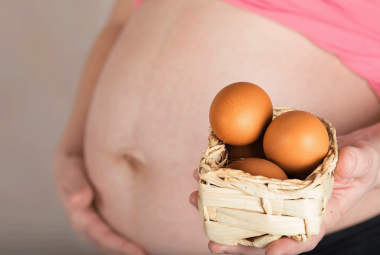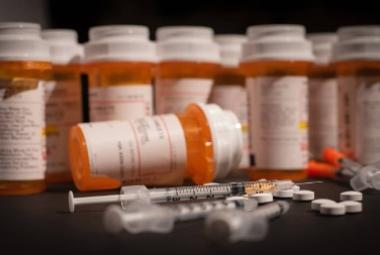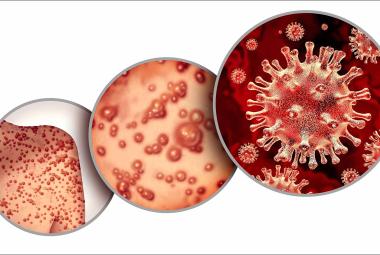For most women, pregnancy is generally considered a period of emotional well-being for the woman and her family. However, many women suffer from an increased vulnerability to psychiatric conditions during pregnancy and after delivery.
It is important to evaluate mothers for psychiatric disorders such as antenatal depression, postpartum blues, postpartum depression, and postpartum psychosis before and after delivery, because they are common and may be undiagnosed or hidden from the physician. If not treated, they may worsen and suicidal/infanticidal sequelae may occur during pregnancy or postpartum.1
Antenatal depression features: emotional lability, sleep disturbance, and difficulty in concentration. The major risk factors are history of depression prior to pregnancy, history of antepartum or postpartum depression, and a family history of depression (especially during pregnancy or postpartum). Other risk factors include maternal anxiety, unintended pregnancy, ambivalence towards the pregnancy, lower income, lower education, smoking, single status, poor relationship quality, limited or no health insurance (United States studies only), discontinuing or decreasing antidepressant medication, young age, multiparity, African-American race, low socioeconomic status, and history of substance abuse.1, 2
Postpartum blues are very common, occurring in 40-80 % of all new mothers within two to three days of delivery. Symptoms are mild, including dysphoria such as sadness, tearfulness, irritability, anxiety, and insomnia, typically peak over the next few days and resolve within two weeks. Risk factors for postpartum blues include: antepartum depressive symptoms, stress around child care, psychosocial impairment, history of premenstrual mood changes, or oral contraceptive use that is associated with mood changes, depressive syndromes predating pregnancy, and family history of depression.3 Helpful interventions include: education, supportive therapy, and reassurance. The distinguishing characteristic of postpartum blues is that they only last several weeks at most and dissipate quickly.
Postpartum depression (PPD) is a more serious and clinically significant disorder, with a prevalence rate of 8-15%. Symptoms may begin early, immediately following delivery anytime during the first year postpartum, peaking at 2-4 months. The hallmark is depression lasting longer than 2 weeks. Suicidal ideation and intrusive thoughts about harming the baby may be present. Many patients complain of excessive insomnia. There is a three-fold increase in the risk of depression during 3–6 months following birth compared to other times of life. PPD affects all aspects of a woman's life, including her relationship with her partner and her child's development. It also affects a woman's mental health in the long term, and negatively affects all areas of quality of life from physical to social functioning. Disorders in cognitive, emotional and social development are more common in children of mothers with PPD and is the primary reason all depressed mothers should receive treatment.4 The mother may be unable to care for her infant adequately, and antidepressants are often required. Hospitalization is sometimes necessary.
Postpartum psychosisis the most serious of the postpartum disorders which occurs in 1-2 per 1000 delivers and may develop within 30 days postpartum. Symptoms often include severe agitation, restlessness, disorientation and confusion. Delusions about the baby and fantasies about harming one’s self or the baby may also be present. Postpartum psychosis is relatively rare, particularly in comparison to postpartum blues and postpartum depression. Hospitalization for psychosis is increased during the first month postpartum as compared to any other time in a woman's life. Approximately half of these episodes were a first psychotic episode, while the others had a prior history for psychosis.The risk factors for postpartum psychosis include history of puerperal psychosis, history of bipolar disorder, family history of puerperal psychosis, first pregnancy, and recent discontinuation of lithium or other mood stabilizers. Postpartum psychosis can be dangerous because of the risk of suicide and/or infanticide. Psychiatric hospitalization is nearly always required, as is treatment with antipsychotic or other psychopharmacologic medications.5
It is important to screen for mood disorders during pregnancy to obtain a complete history so that clinicians can implement preventive strategies to minimize the morbidity and mortality associated with perinatal mental illness.1 Treatment depends on the severity of illness. Non-pharmacologic treatment such as psychotherapy and/or cognitive behavioral therapy is used initially. But for severe depression, psychosis, or when responses to non-pharmacologic interventions are inadequate, psychopharmacologic treatment is required.6 All psychopharmacologic medications are secreted into breast milk. Thus, premature infants may be at more risk from medication exposure because of immature development of their kidneys and liver. When medications are used, a clinician should carefully monitor the mother and infant. He/she should use the lowest effective dose and choose medications with the shortest half-lives, and few or no active metabolites. Adjustments to the feeding schedule relative to peak and trough levels of medications may mitigate some of the medication risk.
Although it is not often used, electroconvulsive therapy (ECT) may be the treatment of choice for refractory depression with suicidality. ECT is considered safe in pregnancy.6
Lylla Ngo, M.D
Thomas Hale, Ph.D
Infantrisk Center
References:
- Roy-Byrne P. Depression in pregnant women: Clinical features and consequences. UpToDate. 07/10/2014 ed; 2014.
- Gandhi SG, Gilbert WM, McElvy SS, et al. Maternal and neonatal outcomes after attempted suicide. Obstet Gynecol. May 2006;107(5):984-990.
- Roy-Byrne P. Postpartum blues and unipolar depression: Epidemiology, clinical features, assessment, and diagnosis. UpToDate. 04/14/2014 ed; 2014.
- Abdollahi F, Zarghami M, Azhar MZ, Sazlina SG, Lye MS. Predictors and incidence of post-partum depression: A longitudinal cohort study. J Obstet Gynaecol Res. Aug 11 2014.
- Marder S. Postpartum psychosis: Epidemiology, clinical manifestations, assessment, and diagnosis. UpToDate. 12/19/13 ed; 2014.
- Roy-Byrne P. Unipolar major depression in pregnant women: Treatment. UpToDate. 04/14/2014 ed; 2014.







